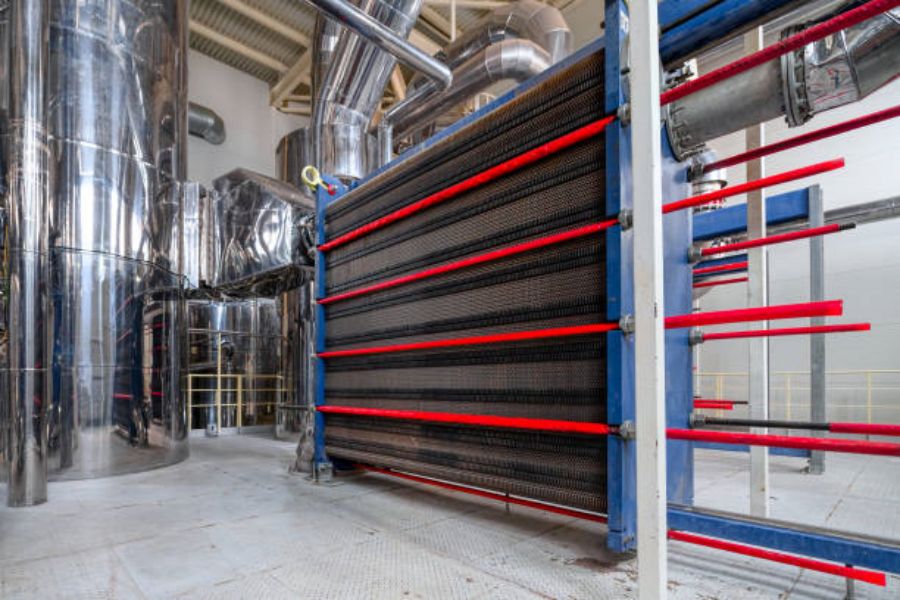water cooled screw chiller: A Comprehensive Guide
Water cooled screw chillers are vital components in industrial and commercial applications where cooling is required. These advanced systems offer efficient and reliable cooling solutions, making them popular choices for various industries. In this article, we will explore the key aspects of water cooled screw chillers and how they work. Whether you are a business owner or an HVAC professional, this comprehensive guide will provide valuable insights into this essential equipment.
What is a Water Cooled Screw Chiller?
A water cooled screw chiller is a refrigeration system that uses water as a heat transfer medium to cool a space or process. It consists of several components, including compressors, condensers, evaporators, and expansion valves. The screw compressor is the heart of the chiller, providing the necessary compression for the refrigerant. Water is used to absorb the heat from the process or space and is then circulated to the condenser for cooling, creating a continuous cooling cycle.
Efficiency and Energy Savings
Water cooled screw chillers are known for their high efficiency and energy-saving features. These systems utilize advanced screw compressors that offer better performance compared to traditional reciprocating compressors. The screw compressor design enables smooth and continuous compression, resulting in reduced energy consumption and operating costs. Additionally, water cooled systems allow for better heat transfer, leading to higher efficiency and enhanced cooling capacity.
Benefits of Water Cooled Screw Chillers
There are several advantages to using water cooled screw chillers in various applications. One of the key benefits is their ability to handle high cooling loads efficiently. These chillers are designed to provide cooling for large spaces and industrial processes, making them suitable for applications in data centers, manufacturing plants, hospitals, and more. Water cooled screw chillers also offer better temperature control and stability, ensuring consistent cooling performance even under varying load conditions.
Environmental Friendliness
Water cooled screw chillers are more environmentally friendly compared to air-cooled alternatives. By using water as the heat transfer medium, these chillers reduce the reliance on harmful refrigerants. Additionally, water cooled systems tend to have lower noise levels compared to air-cooled options, making them suitable for noise-sensitive environments. The energy efficiency of water cooled screw chillers also contributes to reducing carbon emissions, making them a greener choice for cooling needs.
Installation Considerations
When installing a water cooled screw chiller, there are a few considerations to keep in mind. First, ensure that the chiller is placed in a well-ventilated area, as heat dissipation is essential for efficient operation. Adequate space should be allocated for maintenance and service access. It is also crucial to check the compatibility of the chiller with the existing water supply and drainage systems. Consulting with a professional HVAC contractor is recommended to ensure proper installation and optimal performance.
Maintenance and Service
Proper maintenance is crucial for the smooth operation and longevity of water cooled screw chillers. Regular inspections, cleaning, and servicing of the condenser, evaporator, and compressor are necessary to prevent any potential issues. It is important to monitor the water quality and maintain the correct water chemistry to prevent scaling, corrosion, and fouling. Regularly changing air filters and lubricating moving parts are also essential maintenance tasks. Partnering with a reputable service provider can ensure that your chiller operates at peak performance and minimize downtime.
Advanced Control and Monitoring
Water cooled screw chillers often come equipped with advanced control and monitoring systems. These systems allow for precise temperature control, efficient operation, and remote monitoring capabilities. With these features, users can easily adjust cooling parameters, monitor energy consumption, and receive real-time alerts for any abnormalities. This level of control and monitoring enhances the overall efficiency and reliability of the chiller, providing peace of mind to operators and facility managers.
Cost Considerations
When considering the cost of a water cooled screw chiller, it is important to evaluate the long-term benefits and savings. While the initial investment may be higher compared to air-cooled options, the energy efficiency and improved performance of water cooled screw chillers can lead to significant cost savings over time. Additionally, the durability and reliability of these systems contribute to reduced maintenance and repair costs. It is advisable to conduct a thorough cost analysis and consider the specific cooling requirements before making a purchasing decision.
Conclusion
Water cooled screw chillers are essential components in various industries, providing efficient and reliable cooling solutions. Their high efficiency, energy-saving features, and environmental friendliness make them popular choices for cooling large spaces and industrial processes. Proper installation, regular maintenance, and advanced control systems are key factors in maximizing the performance and longevity of these chillers. When considering cooling options for your business or facility, water cooled screw chillers should be carefully evaluated for their long-term benefits and cost savings.
